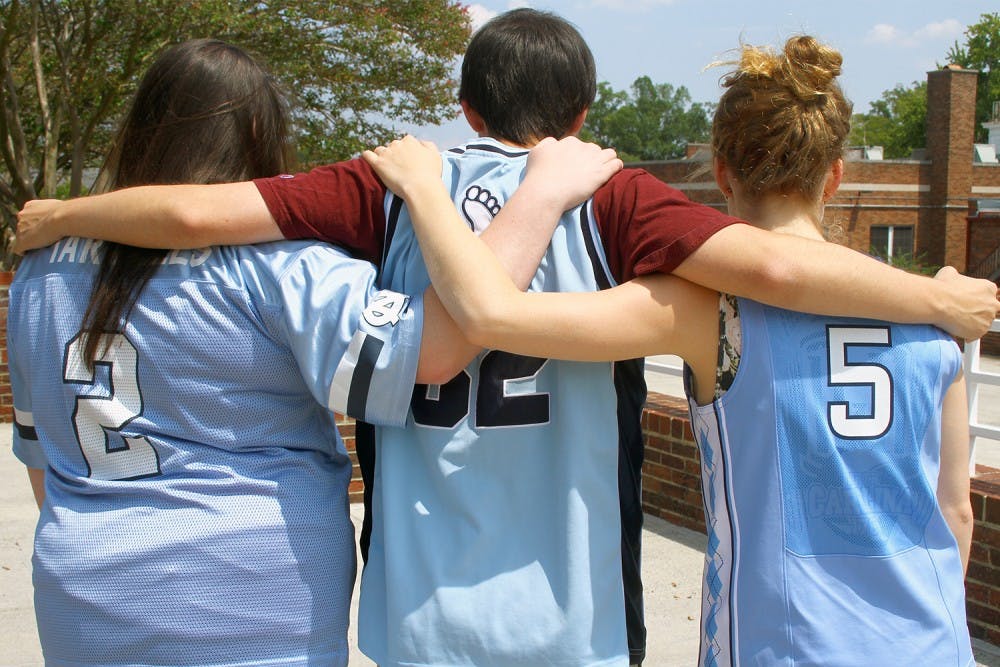Several Division I universities, including Ohio State University, the University of Nebraska and the University of Miami adopted new jersey sale policies this summer. This comes a year after a California district judge ruled that NCAA athletes have a right to earn money from the use of their likenesses and names in television and video games.
The universities’ new policies are meant to prohibit jerseys with prominent players’ numbers from being sold. Instead, jerseys with generic numbers — typically the number one and the last two digits of the year — will be sold to fans.
This year, UNC featured the numbers 1 and 15 on billboards and in jersey modeling, but UNC Student Stores and Franklin Street shops still sell jerseys with popular athletes’ numbers printed on them. That may change next year as UNC follows other universities’ responses to court rulings, Brad Ives, associate vice chancellor for campus enterprise, said.
“Nike selects jersey numbers, and they do that in the first quarter of each calendar (year) for both football and basketball, so we’re already locked in for what those numbers are going to be,” he said. “We’ll have a different policy in place for next year.”
But the specifics of that policy are still under discussion.
“We are currently discussing with (the office of trademarks and licensing) what our policies and procedures will be moving forward,” Rick Steinbacher, senior associate athletic director for external communications, said. “We’ve talked about it for a number of years.”
Steinbacher said he does not know whether generic numbers would change jersey sales, but he said he thought jerseys would continue to sell well because of the school’s athletic tradition. Steinbacher played football at UNC and said he would have been thrilled to see fans wearing his number.
But jersey numbers sold in UNC Student Stores are chosen by the manufacturer, not by the school. Because the jerseys sell through Student Stores, any residual funds from these sales go to non-athletic need- and merit-based scholarships.



